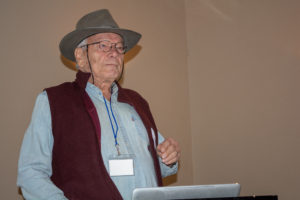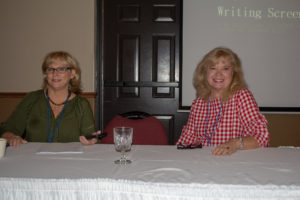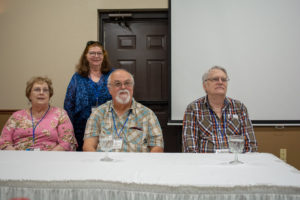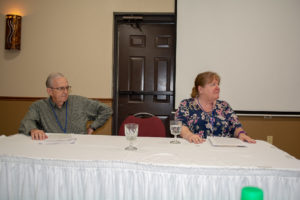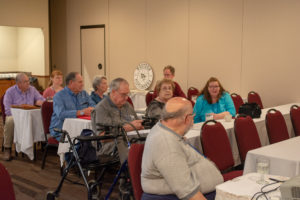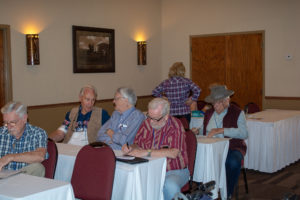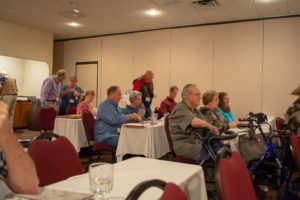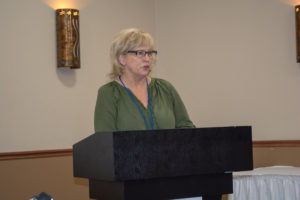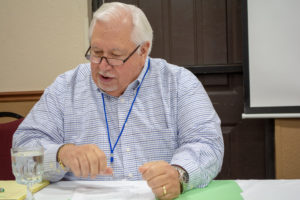I’m still enjoying the recordings from the Historical Novel Society Conference. Today let’s look at “Ten Tips for Researching and Writing Historical Fiction” by Susan Meissner.

“The best historical novels,” Meissner said, “are a transportive hybrid of fact and fiction that weave the hallmarks of a great story – plot, characters, and motivation – with the most compelling elements of the past – setting and tension. Here are 10 tried and true insights for crafting an unputdownable read that dovetails historical details with a compelling storyline.”
- Consider relevancy & reader interest before you start writing. It’s not going to do you any good to spend months or years writing something nobody is going to be interested in.
- Utilize all the research avenues before you start writing. Don’t just “google” it–use the library, the newspaper morgue, read journals & diaries & letters, visit the site of your story, etc.
- Create a system to document your research material before you start writing. I use Scrivener because it allows you to import websites and other forms of research, not just to copy and paste what you’ve looked up.
- Make a timeline before you start writing. You’ll need this to be sure you have all your dates correct and so you can get your scenes into order.
- Choose your construct carefully before you start writing. Downs & Wardle in Writing About Writing, say’ “One of the key features of an effective construct is that it quickly begins to seem ‘natural’ or inevitable, rather than made-up.”
- After you start writing, the story is king, not the historical backdrop. Don’t forget this fact. You may have a ton of research material, but you don’t need to do an “info dump” and preach at your readers about it. Tell an exciting story with a few historical tidbits scattered throughout.
- Strive for authenticity rather than total accuracy. You can always add a note at the end of your novel stating that you fudged a date or moved a railroad to suit your story.
- Make your historical setting a character. The world your characters inhabit should be as realistic as possible and your story shouldn’t be able to be plucked from that setting and placed anywhere else.
- No info dumps. Ever. See above, where story is king. Resist the urge to share your knowledge. If you must write everything down, create a nonfiction booklet and publish it along with your novel as a “freebie” on Amazon.
- Read great historical fiction. The more you read, the richer your own stories will become.
Still watching the recordings from the conference and still learning a lot. I’ve especially enjoyed Sara Wigal’s session on creating your brand.

“Building Your Brand Before You Query” was an excellent session that provided concrete examples you can use to build your author brand. One of the suggestions was to include a “Brand Manifesto” on your website somewhere: “I write (genre conveyed) that introduces (audience segment) to (action step) to (core values communicated).” For example, “I write historical fiction that allows underrepresented women to envision an alternate history to that of dour textbooks, and thus begins to drown out colonialist narratives.
Let the following questions guide you as you search for your brand:
- What problem are you solving?
- What is the sexiest trait about your book or books?
- What would you never tell a book buyer about you on a first date?
- When potential customers say “no thanks,” what is generally the reason?
- What are the benefits and features to a reader of your book?
- What qualities do you want readers and the book industry to associate with you?
- What is your mission?
Other tips Sara suggested include:
- Brand as an AUTHOR, not a book, when it comes to social media, websites, etc. If you brand each book, you’ll never get finished and you risk your name getting lost in the shuffle.
- Author brand as a brand–your identity is separate. Your author self is a character you put on to deal with your public. Keep it separate from your personal (private) life.
- Use your author brand manifesto in your query letter.
- Allocate set time amounts to platform activities each week (or month). Treat your platform as one more job in the writing business and keep on top of it.
I’m still watching the recorded conference for the Historical Novel Society, and am learning a lot!

In Jane Freidman’s Self-Publishing class, we learned that self publishing is a good fit for the following:
- Romance & Erotica Writers
- Series Fiction
- Serials or Serialization
- Prolific Popular Fiction Writers
There are three categories of self-publishing: assisted/full-service, hybrid, and DIY/Indie. With a full-service publishing company, the author pays the company. Almost nobody is ever turned away because the company makes money from each author. There are many budget categories and packages available. With a hybrid self-publisher, the author pays the company up front, but the product is vetted in some way. This company pays royalties like a traditional publisher does. There’s a potential for greater marketing and promotion support (with a greater cost, of course). The DIY/Indie option has the author hiring any help needed instead of paying a company to do everything. There’s a greater chance of profit with this option, and examples include Amazon Kindle and KDP, and Ingram Spark.
The possible costs for a full-service company start at less than $5,000 for a basic package. A professional package may cost between $5,000 and $25,000, and an elite package could cost as much as $30,000 and up. It’s hard to earn your money back through book sales with a full-service publisher. Key attributes of DIY publishing include a (mostly) free upfront, non-exclusivity, instant updates, no gatekeeper, and the author controls pricing.
Here are a few approximate costs for the DIY publisher:
- Editing: up to $5,000 (including proofreading and copyediting)
- Cover Design: It’s doable for under $1,000 but easy to double or triple costs
- Interior Print Design: $1,000 to $3,000 if you hire it out
- For tight budgets, look for designers who offer all-inclusive packages!
I didn’t actually get to “attend” this virtual event in person, as the sessions were mostly while I was at work, but I’m rewatching the highlights on the website and enjoying them.

My favorite sessions so far have been “Take Off Your Pants” (a session urging you to outline at least the main points of your plot) and “Up The Ante” (about adding conflict to your story). Of course, the Jane Friedman session about self-publishing is also quite informative.
Some of the tips we’ve learned so far include the “beats” of your story:
- Opening Scene: we see the character in their ordinary life
- Inciting Event: this changes their entire life with no way back
- Character Realizes External Goal: they know what they want
- Display of Flaw: we see the character’s main flaw that has prevented them from gaining that goal before
- Drive for Goal: character makes an effort to reach their goal
- Antagonist Revealed
- Thwart #1: the antagonist (or something else) gets in the way of the goal
- Revisiting Flaw: we see the flaw keeping the character from the goal
- New Drive for Goal: the character tries even harder
- Antagonist Attacks
- Thwart #2: Another obstacle in the way
- Changed Goal: the character finds a new goal
- Ally Attacks: a friend/mentor points out flaws/challenges character
- Girding the Loins: the character finally recognizes their flaws
- Battle: the character fights the antagonist
- Death: the dark moment where everything looks hopeless
- Outcome: end of the story/wrap-up
And for Conflict. we learned the following:
- Central Conflict: the main engine driving the story; the central question of the book; the major challenge the protagonist must overcome by the end of the story
- Underlying (Chronic) Conflict: an outside conflict thrust onto the character
- Internal Conflict: thoughts/emotions
- Transient Conflict: circumstantial (Act of God)
A scene must either advance the plot or reveal something about the character. You need some sort of conflict in each scene, also, either explicit or internal. Ask yourself, “What’s the worst that could happen here?” — and then make it happen.
Our WWW Conference is coming up soon. I’m going to enjoy the (virtual) conference and am looking forward to chatting with my fellow Women Writing the West!

This year I’m contributing to the charity auction with a Lowcountry Basket containing such items as a pine needle basket, Spanish moss scented candle, sea salt from the Charleston sea islands, benne seed cookies, tea & coffee grown in the Lowcountry, Gullah Gullah Gumbo soup mix, and some hand gathered seashells. Hopefully it will be unique enough to attract some high bidders!
Our keynote speaker will be Molly Glass. Molly Gloss is the author of several novels including The Jump-Off Creek, The Dazzle of Day, Wild Life, The Hearts of Horses andFalling From Horses, as well as the story collection Unforeseen. She writes both realistic fiction and science fiction, and her work has received, among other honors, a PEN West Fiction Prize, an Oregon Book Award, two Pacific Northwest Booksellers Awards, the James Tiptree, Jr. Award, and a Whiting Writers Award. A fourth-generation Oregonian, she lives in Portland.
If you’re interested, head over to the website and register before it’s too late!
I’ve been “attending” the SC Writer’s Association’s virtual conference this weekend. The keynote speaker was Patti Callihan Henry, who spoke about “The Soul of Story” and said we are hard-wired for the art of storytelling. We also had a writing workshop with her where we looked at telling a story based on your character’s wants. She asked us to think about the following questions:
- What does your character want?
- Why does your character want it?
- What is the misbelief or unconscious belief that keeps your character from getting it?
- What will your character learn or who will they become?
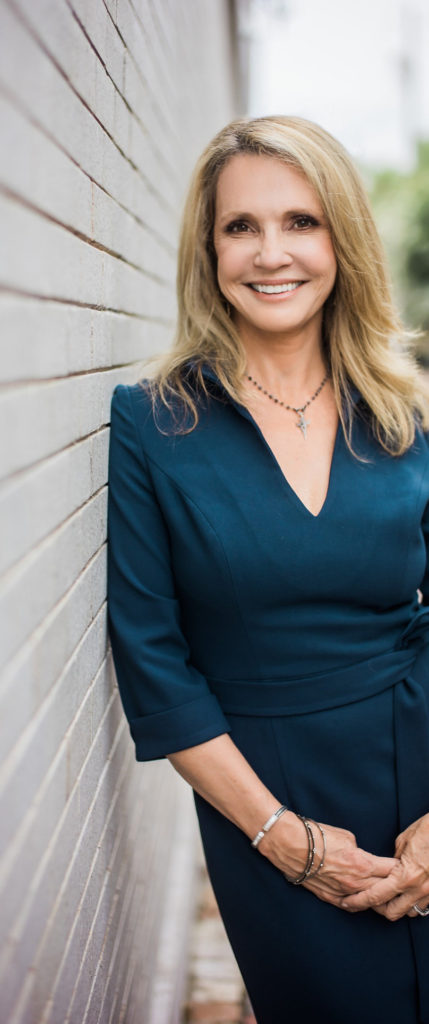
We also had a sessions on finding humor in tense situations and a panel of literary agents explaining exactly what it is that they do. Patti and her agent, Amanda Bostic, talked about how a manuscript goes from draft to marketplace. The afternoon workshop was on putting emotion into your writing, then we had a query-fest and a prompt party before the open mike night. I read the opening pages of Outlaw Security and it went over pretty well, so I’m happy.
Today, we’re going to start with “The Shy Writer’s Guide to Presenting Yourself” and “A User’s Guide to Novel Structure.” We’ll end the conference with a slush-fest. I didn’t send anything in to that because I already know Outlaw Security starts off strong. I just need to throw in a little tweak I thought up the other day …
It’s been a good conference and a nice weekend. I’ve enjoyed “talking” with my fellow writers and hearing their work.
Yesterday was the last day of the Women Writing the West Conference.

This was a great little conference — lots to do and plenty of classes for every type of writer. Thursday’s “extra” day offered Self Publishing, a Query Letter Boot Camp, and a critique you had to sign up for in advance (I went to the boot camp). Then we had “social hour” and a welcome from the current president along with readings from the finalists for the WILLA awards.
On Friday, we started out with social hour for breakfast, then dug into the curriculum with Visual Plotting, Soft Marketing Tips, Pitch Perfect, and Realistic Wilderness Characters & Settings. The next course included a Virtual Tour of Colorado Springs, Social Media, Submission Netiquette, and Advanced Writing Tips. After that, Publishing Trends in a Post-COVID World, Contracts Demystified, Historical Research & Craft, and Writing Emotion.
After lunch, we had a lovely talk by Bob Bose Bell, publisher of True West magazine, and Radio Interview Tips from Ryan Warner of Colorado Public Radio. Both of those were really fun and got us warmed up for the afternoon sessions.
These included Getting the Most from WWW, Author Marketing Collectives, a journal & magazine panel, and Mosaic. Then we had dinner hour and the awards ceremony for the Laura (short story) and Downing (journalism) Awards. Most inspiring, as was the short musical film afterwards: Here’s To The Women, by Linda Allen.
Saturday morning we settled in after breakfast hour to talk about Braiding the Essay, Peak Your Publicity, First Page Perfect, and Poetic Techniques for Your Fiction & Nonfiction. The next session included a talk on Helen Hunt Jackson, Goodreads for Authors, Set the Scene, and an Agent Acquisition Panel. Then it was time for Planning Your Book, Getting Book Reviews That Count, and Editors Acquisition Panel, and Secondary Characters.
After lunch, we had the WILLA finalists ceremony and a member’s meeting. Then it was time for Climbing Past the Fear, Homesteading the Wild Web, The Transcendent Memoir, and Turning Premise Into Plot. After that it was social hour with Open Mic and Guided Writings, then dinner.
After dinner, we had the WILLA Awards ceremony with keynote speaker Margaret Coel. Our after-awards entertainment was folk-music from Wes and Victoria Hamil from their CD White Man, Red Road. We really ended the conference with a bang!
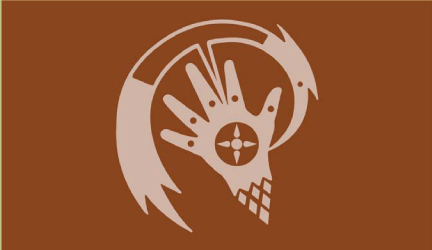
They gave us the option to purchase recordings of the classes we had to skip, too, which is going to be occupying my days for the next little while. Thanks for a fantastic conference, guys!
Next week is another writing conference — Women Writing the West’s Climbing Higher: Endless Vistas, Unlimited Vision.

This looks like a very useful conference — not quite as much to do as Jericho Writers’ Summer Festival of Writing or League of Utah Writers’ Quills Conference, but plenty to choose from. I’ll be hitting the “Query Letter Boot Camp,” “Pitch Perfect,” “Make Your Writing Soar (Advanced Craft Tips),” “Writing Emotion,” “Peak Your Publicity,” “How to Get Book Reviews That Count,” and “Turning Premise Into Plot.” They’ve also got a keynote speech by the editor of True West Magazine, a movie night, and musical entertainment from White Man, Red Road by Wes & Victoria Hamil.
This will be my fourth or fifth virtual conference this year — I confess I’m liking the virtual format greatly. Many of them are free or greatly reduced in price, and the ones that have been “full price” didn’t include meals or hotels or travel so they’re actually half off or more. I’ll just have to remember to put on my cowboy hat for this persona instead of the space helmet I’ve been wearing with the science fiction conferences!
The Colorado Writers’ Collective is hosting a free virtual conference over on YouTube – head on over and look them up!

I’ve enjoyed all of the virtual conferences I’ve attended this summer! Jericho Writers’ Summer Festival of Writing was excellent (and we had Neil Gaiman read his newest children’s book to us). The Utah League of Writers put on a great event with a “bar” and pitch sessions. DragonCon did their usual bang-up job without the 85,000 people jostling for position in line. And the Colorado Writing Collective looks like it’s going to be just as educational as the rest.
If you’ve never attended a writing conference, you should seriously consider finding a good one and joining in on the fun. You’ll get informational sessions on writing and publishing, fun panels with the guest authors, usually a chance to pitch your book to an agent or editor, and plenty of time and opportunity to network with your fellow writers (and those agents and editors, too). They’re usually not free, of course, but I think most of them are well worth the cost of attendance.
Our SC Writers’ Association will be hosting our yearly conference in April 2021 in Columbia. We’ve got Patti Callahan Henry and Jeffrey Blount as guest speakers. There are workshops from submission tips to the heart of the story to the perfect pitch to memoir tips. There are slushfests where you can have agents and editors respond to your query letter and/or writing sample. We’ve even got an open mic night. Hop on over and check it out.
Does your local writing group have a conference? Where’s the best conference you’ve attended?
On Day 2 we learned about Economics in the Old West, Weird Westerns, Legal Labyrinths (the “rights” side of the law), Women Professionals of the Old West, Other Markets for Western Writers — and my own Social Media panel seemed to go over well.
